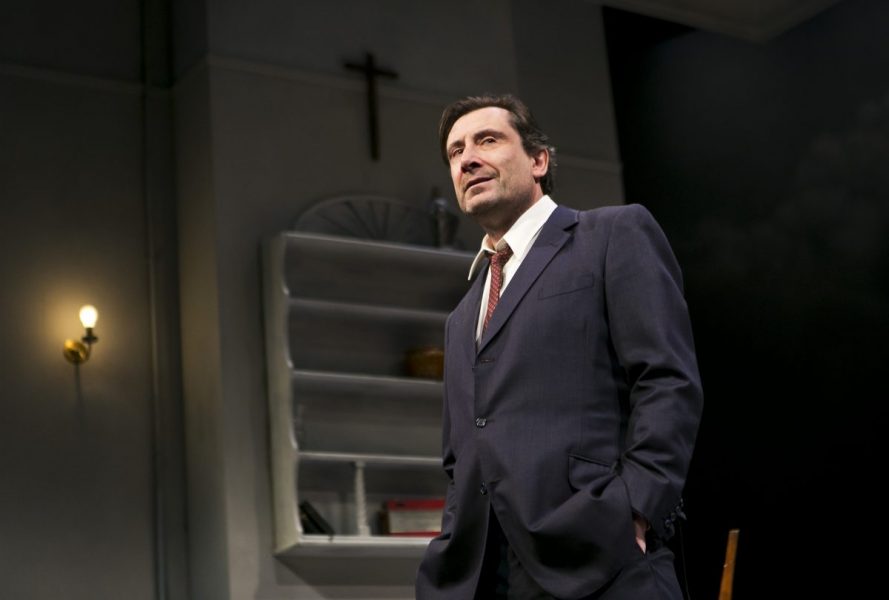Playing @ Royal Lyceum Theatre, Edinburgh until Sat 7 Feb @ times vary
As a way to kick-off 2015, Brian Friel‘s Faith Healer is no January blues busting feelgood romp, but this powerful, tautly-written piece, directed here by John Dove, is certainly a bracing way to shake audiences from winter slumbers.
Over three separate scenes, a trio of characters – a travelling faith healer, his wife and his agent – each offer a monologue to the audience about their time on the road together. Each can recite by heart the Welsh and Scottish villages to which they’ve toured – all the ‘Llan-‘s and the ‘Aber-‘s and the ‘Loch-‘s. For this is no big-time showbiz outfit, but the fag end of music hall’s golden era coughing a last breath in a draughty church hall. As the peaks and troughs of touring life are recounted, it’s clear each of them has, either through failing memory or self-deception, alighted on a slightly different version of the past. We see not only their flaws, but flaws in our own perception and in the concept of truth and reality.
Sean O’Callaghan, as Irishman Francis Hardy, the Faith Healer of the title, prowls the stage flamboyantly, hair swept back, mannerisms bold and direct, but with a low budget shabbiness to his single-breasted suit and unbuttoned collar – a Ryanair Bryan Ferry. The singularity of the script and the sparseness of the set leave no place to hide, and fortunately O’Callaghan needs none. The high-ceilinged room in which he stands heightens the man, augmenting his physical presence, and for an unforgiving half hour he has full command of the audience.
In the next scene, the same high ceiling serves to diminish the figure of Grace, his partner, whose confidence has been shattered by years on the road. There is a dowdiness to her outfit and a timidity to her demeanour that belie the description she’s given by the other characters. To hear them talk, you’d think Frank and Grace were the warring couple from Fairytale of New York, but for all that Niamh McCann performs superbly, it’s somehow hard to picture her as the foul-mouthed lover mocking Frank’s ‘genius’ or the seductive bar-room chanteuse who wows Teddy with her Irish folk songs.
After the interval, Patrick Driver arrives as the agent Teddy, a Bruce Forsyth meets Arthur Daley figure, a bygone cockney relic (more so since the play was written thirty years ago). His act provides the light relief, yet beneath the ‘Cor Blimey guv’nor’ chirpiness is a sad and lonely passion for both showbiz and his two charges.
It is testament to writer, actors and director that each character departs the stage at the optimum moment, with character and storyline revealed but welcome not outstayed. But the biggest burden falls to O’Callaghan who has to return to explain the night in Donegal that everyone has been skirting around. The dense poetry of the script requires both gravitas and tenderness and O’Callaghan provides both to bring the play to its emotive and enigmatic conclusion.
